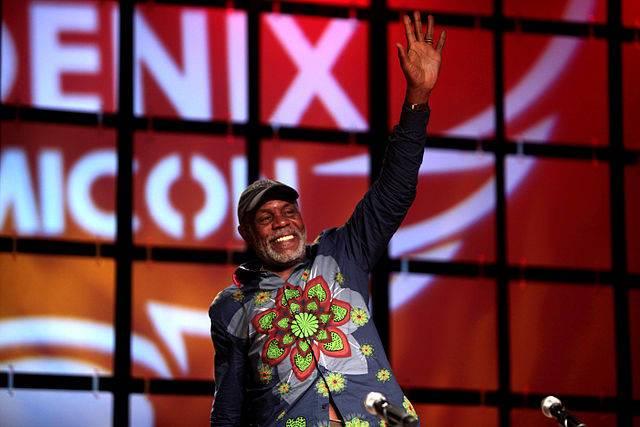
The online hospitality service Airbnb has added Danny Glover to their list of advisors. The 71-year-old actor, known for movies such as the Lethal Weapon series and Angels in the Outfield, will work with Airbnb on improving the company’s engagement with communities of color.
Bringing Glover onboard is another step Airbnb is taking to repair its relationships with ethnic and racial minorities. On one hand, the sharing economy giant has been lauded for providing hosts with a way to score a new stream of revenue – and even making a difference in whether some hosts can avoid losing their homes. But Airbnb has also been criticized for its role in inflating rents in cities such as Barcelona and San Francisco.
Airbnb has also come under scrutiny in recent years as many people of color have come forward to complain that they were shunned by hosts. Last year the company was hit with a racial discrimination lawsuit, and revamped its terms and conditions with the assistance of leaders such as former U.S. Attorney General Eric Holder. Despite those changes, some rogue Airbnb hosts still fomented public relations headaches for the company. Earlier this winter, an Asian-American graduate student shared her experience after a host canceled her reservation last-minute while she was driving in a snowstorm. California’s fair housing agency ended up fining the host $5,000 and ordered her to take a university-level Asian studies class.
But Airbnb has been a leader on other fronts, whether it was speaking out and offering space in support of citizens affected by the Trump White House’s travel ban, or terminating the accounts of neo-Nazis and white supremacists who were attempting to rent spaces during this month’s “Unite the Right” rally in Charlottesville.
To that end, Airbnb’s publicly stated commitments to ensure everyone has fair access to a roof over their head is why Glover reportedly agreed to work with the company. “I’ve seen first-hand how committed [Airbnb is] to getting it right,” he announced in a public statement, “and I have been incredibly heartened to see the resources, desire, and drive they are directing towards ensuring that their service is used fairly and inclusively.”
Glover and Airbnb say they will strive to show communities of color how they can take advantage of the company’s platform to enhance their income. “In the U.S., the typical Airbnb U.S. host earns $6,100 every year they share their home,” Glover said, “supplemental income that can cover expenses like food, rent, caring for a sick relative, and education for their children.”
The relationship Airbnb forged with Glover comes one month after the company announced it started a partnership with the National Association for the Advancement of Colored People (NAACP) to raise awareness about the company in minority neighborhoods. Airbnb said it will share 20 percent of its earnings to the NAACP, while promising to boost the diversity of the company’s administrative staff.
While Airbnb has been criticized for contributing to gentrification, causing rents in some cities to spike and create housing shortages, for homeowners wishing to rent out that spare room or in-law unit, the results can offer financial security. Estimates of what hosts make on average are all over the map; one report said New Yorkers pocketed on average $5,475 last year. But with hosts pocketing 97 percent of what they charge through Airbnb, while usually receiving those funds next day if they have a PayPal account, welcoming Airbnb guests pays dividends. Glover mentioned the social benefits as well:
“The bonds that can form in these interactions are indispensable to the greater project of breaking down the social barriers that make all forms of discrimination so intractable in the first place. These spontaneous interpersonal relationships are the laboratories for transforming relationships among people; the sites at which we begin to implement our highest ideals in practical yet poignant ways.”Image credit: Gage Skidmore/Wiki Commons

Leon Kaye has written for 3p since 2010 and become executive editor in 2018. His previous work includes writing for the Guardian as well as other online and print publications. In addition, he's worked in sales executive roles within technology and financial research companies, as well as for a public relations firm, for which he consulted with one of the globe’s leading sustainability initiatives. Currently living in Central California, he’s traveled to 70-plus countries and has lived and worked in South Korea, the United Arab Emirates and Uruguay.
Leon’s an alum of Fresno State, the University of Maryland, Baltimore County and the University of Southern California's Marshall Business School. He enjoys traveling abroad as well as exploring California’s Central Coast and the Sierra Nevadas.














